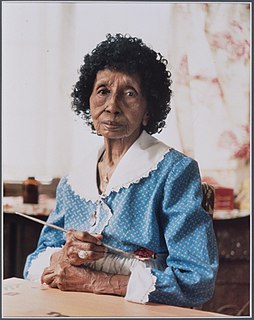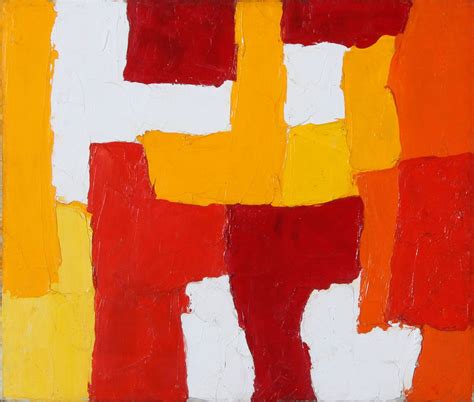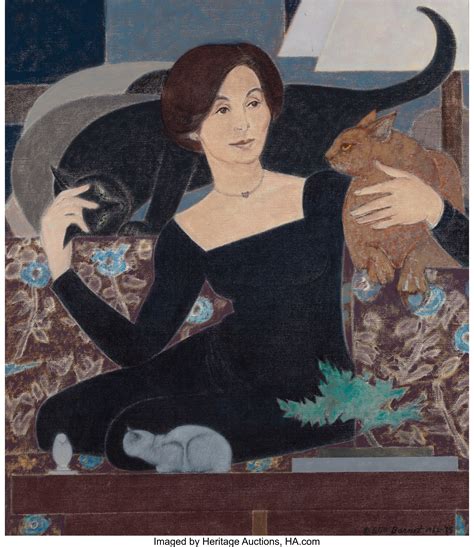A Quote by Allison Mackie
Paint right into the darkness. While painting in these conditions the mind shifts gears, engaging the unconscious. Unique 'insights' happen in the dark.
Related Quotes
Help people to meditate, because there is nothing more creative than meditation. Each art and each creativity can be tremendously enhanced by meditation. If somebody is a painter and he starts meditating, his painting will have a sudden jump, it will become tremendously profound - because whatsoever you paint reflects your mind. If the mind goes deeper, your painting will go deeper. You paint your mind. What else can you paint? You paint yourself.
I like painting because it's something I never come to the end of. Sometimes I paint a picture, then I paint it all out. Sometimes I'm working on fifteen or twenty pictures at the same time. I do that because I want to - because I like to change my mind so often. The thing to do is always to keep starting to paint, never finishing painting.
The child's mind is not the type of mind we adults possess. If we call our type of mind the conscious type, that of the child is an unconscious mind. Now an unconscious mind does not mean an inferior mind. An unconscious mind can be full of intelligence. One will find this type of intelligence in every being, and every insect has it.
You have to learn to trust - and listen to - your unconscious mind. If you pose the question to your unconscious "is this person a friend or a foe" - safe or a threat - your unconscious mind is hard-wired to assess that brilliantly for you. It's just that we're not very good at paying attention to what our unconscious minds are telling us.
You begin by engaging the left hemisphere of the brain with the overall shape, the basic structure of the painting, and then eventually you engage with the colour, with the mood of the painting and then you are entering the activities of the right hemisphere - and it is in the right hemisphere that ideas of space are born, the realization that you are seeing space.
There are five dark matters and five lamps. Love of this world is darkness, and the fear of Allaah is its lamp. Sin is darkness, and its lamp is repentance. The grave is darkness, and its lamp is 'none has the right to be worshipped but Allaah, and Muhammad is the messenger of Allaah.' The hereafter is darkness, and its lamp is the good deed. The Siraat is darkness, and its lamp is certainty of faith.
The difference between the "natural" individuation process, which runs its course unconsciously, and the one that is consciously realized is tremendous. In the first case, consciousness nowhere intervenes; the end remains as dark as the beginning. In the second case, so much darkness comes to light that the personality is permeated with light and consciousness necessarily gains in scope and insight. The encounter between conscious and unconscious has to ensure that the light that shines in the darkness is not only comprehended by the darkness, but comprehends it.
Seeing the play ( A Lie of the Mind ) clearly is part of why I wanted to direct it. I see hope at the end of this play. People talk about how dark the play was, but I feel like, if you really look at the darkness, you're able to go through it, and you realize that you can handle dark moments in life and that everything will be all right.




































